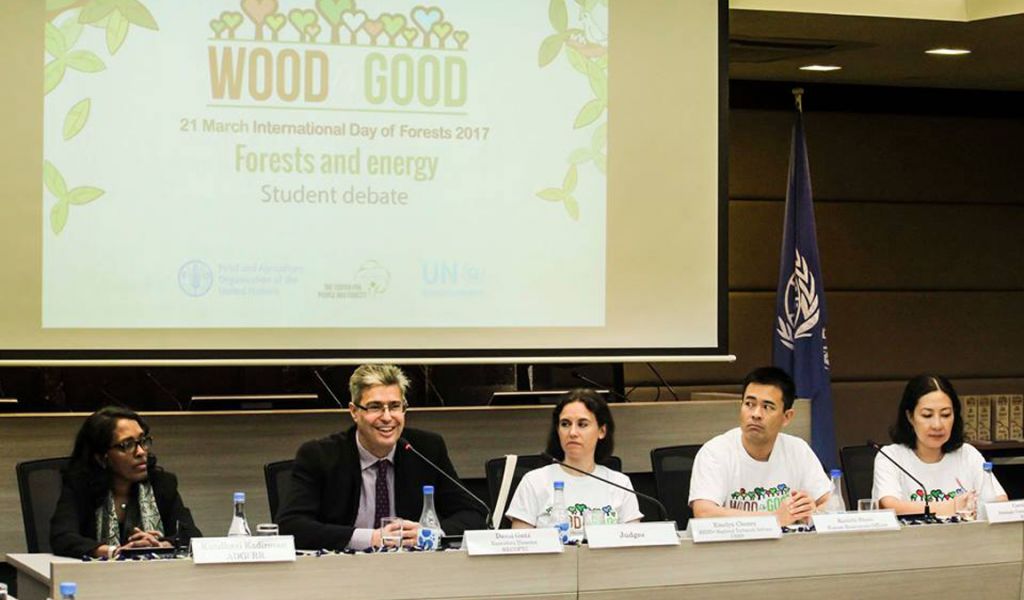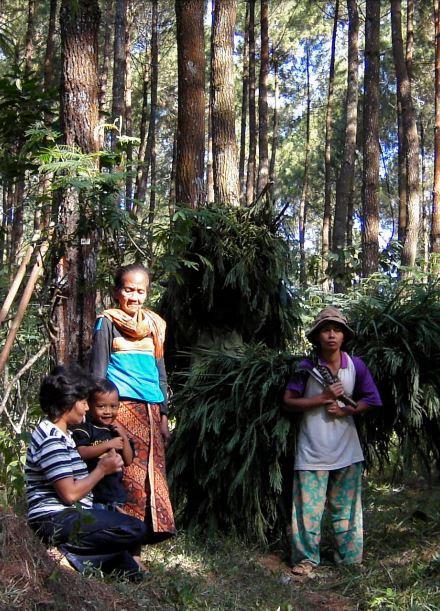Forests and energy: How can biomass energy benefit local communities?

The potential benefits of improved biomass energy production and use are massive. But for biomass energy to be sustainable, it must be managed responsibly. Dedicated efforts are needed to reach and incorporate the needs of the least powerful stakeholders, in order to ensure that this segment of society benefits.
Just last Tuesday, I had the privilege of opening the RECOFTC, FAO and UNEP 4th annual student debate on forests and energy on the International Day of Forests. During my opening address, I shared some of my insights from when I worked as an expert consultant on biomass energy and as a Director of Forest Carbon Science with The Nature Conservancy
I listened intently while the students had a spirited debate on the pros and cons of using forests for biomass energy, including its contributions to reducing poverty. Over the years, I have been fortunate to be a co-author on a number of papers and book chapters dealing directly with this topic. A number of studies have pointed out that each forest context is very different. Thus the sustainable sourcing of forest biomass for energy generation and climate mitigation needs to consider the growth patterns, transportation and full life cycle of the wood to energy process.
Overall, however, the potential benefits of improved biomass energy production and use are massive. Biomass energy can provide a source of light, so a student in a poor household can study after dark. Biomass can be converted to electricity to run water pumps providing clean water. This same electricity can also increase information flows from radio, television, and cell phones. More efficient use of biomass energy can result in improved health by reducing indoor air pollution.
But for biomass energy to be sustainable, it must be managed responsibly and unfortunately the reality is that it is rarely as well managed as we would like it to be. Over use of biomass resources can compromise biodiversity and it can harm the poor because they are the ones most heavily dependent on biomass energy. Poor households can suffer from significant negative health impacts from the misuse of biomass energy. Based upon the student debates that I heard last week, there has been little progress in meeting the challenges of capitalizing on the opportunities presented by biomass energy.
As the new Executive Director of RECOFTC- The Center for People and Forests, we are also debating what our role should be toward advancing community forestry within the food-water-energy nexus in the Asia and the Pacific region. This includes where and how participatory approaches can improve co-management models in each part of the nexus. We must consider how this shift in fuel use could make a huge difference in the quality of life and economic prospects of Asia and the Pacific nations by helping the poor access safer cooking fuels, electric power, and power for transport and running machinery.
Compared with traditional burning of fossil fuels, burning biomass for energy may have greenhouse gas (GHG) benefits. However, at RECOFTC, we are predominately concerned with the societal benefits and the opportunity to raise the voices of local people on how forest biomass resources are managed and utilized.

As one of the students took the time to explain during his debating stance, there also needs to be particular attention paid to gender issues in biomass energy projects. Women and children are often the collectors of biomass resources, as such a biomass project can have significant unintended negative impacts on the resource collectors. Moreover, the most economically marginal households in many communities are often those headed by females.
Changing how biomass energy sources are used and managed can have detrimental impacts on the most vulnerable in a community. Dedicated efforts are needed to reach and incorporate the needs of the least powerful stakeholders, in order to ensure that this segment of society benefits as well. RECOFTC, with its emphasis on social inclusion and gender, practices a rights-based approach that can be extended to the biomass energy field. This approach ensures that there are equitable returns for resource collectors, upon whom the burden of forest biomass collection rests. This also extends to equitable access to investment (especially micro-finance opportunities) and participation in decision-making processes.
As I sat there at the United Nations Food and Agriculture Organization’s (FAO) regional office for Asia and the Pacific listening to the student debate, it occurred to me that I had heard these same arguments under many different socio-economic contexts, from the need for countries that are exporting energy to its neighbors to those developing micro-scale distributed energy projects aimed at sustainability and poverty alleviation at the village level. Ultimately, we are all interested in energy-poverty alleviation approaches that will provide tangible benefits locally without degrading the resource base. This is one debate that I will enjoy entering into for many years to come.
For information on RECOFTC's work on forest biomass energy, see http://recoftc.org/project/forinfo/static-landing/reports-and-working-papers

